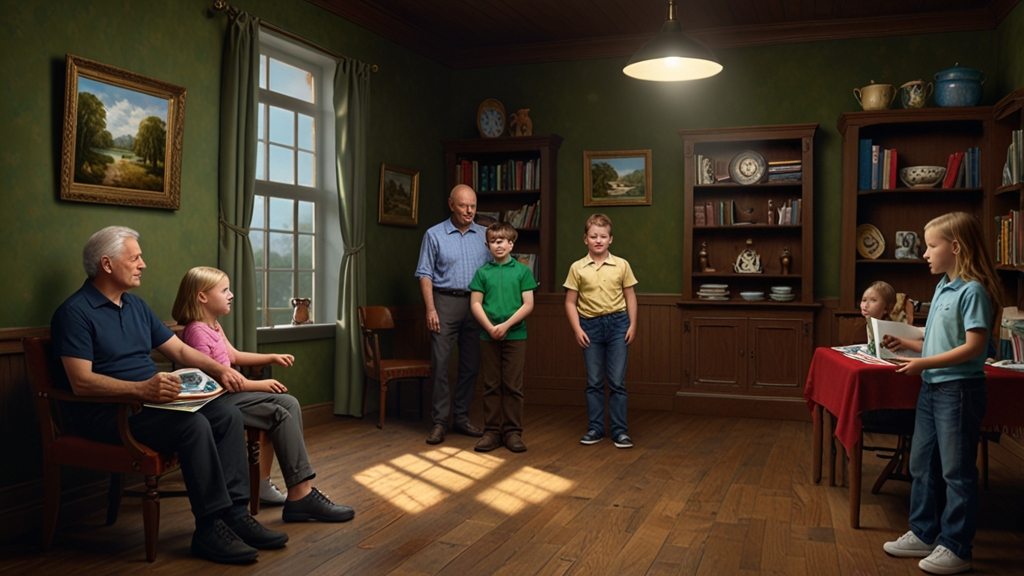Riddles for All Ages: Fun for the Whole Family
Riddles have been a source of entertainment and mental exercise for centuries. They spark curiosity, foster critical thinking, and forge bonds among family members. Whether you're a child, teenager, or an adult, riddles offer an engaging way to pass the time, stimulate the intellect, and enjoy some hearty laughs. This article explores the timeless appeal of riddles, their benefits, and some examples you can share with your family regardless of age.
The Timeless Appeal of Riddles
Riddles have a unique ability to captivate us with their blend of mystery and wit. They have been used historically in various cultures for teaching, storytelling, and even as a means to pass messages discreetly. Their simplicity yet profound impact lies in the playful challenge of decoding them. Riddles inspire curiosity as they push people to think outside the box, encouraging a blend of logic, language skills, and creative thinking.
Intergenerational Bonding
One of the best things about riddles is their ability to bring people of different ages together. Solving riddles as a family can strengthen relationships and create lasting memories. Adults can often bring a wealth of experience and abstract thinking to the table, while children can surprise everyone with their fresh perspectives and imaginative solutions. This collaboration can lead to delightful "aha!" moments that everyone can share and enjoy.
"Riddles have this amazing way of connecting people. It's a joy to see a family's different generations huddle together, each contributing their unique strengths to solve a puzzle. It's intellectual teamwork at its best." - Jane Williams, Family Therapist
Educational Benefits
Riddles are not just fun—they are also educational. They improve language skills by expanding vocabulary and comprehension. Riddles often use wordplay, multiple meanings, and puns, which helps children understand and enjoy the complexities of language. Additionally, riddles cultivate critical thinking and problem-solving skills; they challenge the mind to recognize patterns, build connections, and approach problems from different angles.
"When children engage with riddles, their cognitive abilities are being fine-tuned. The process of tackling a riddle enhances their reasoning skills, attention to detail, and creativity, preparing them for more complex academic challenges in the future." - Dr. Alan Green, Child Development Expert
Riddles for Every Age Group
Here are some riddles catered to different age groups. These can be used during family gatherings, road trips, or just a fun evening at home.
For Younger Children
Riddle: I’m tall when I’m young and short when I’m old. What am I?
Answer: A candle.
Riddle: What has keys but can’t open locks?
Answer: A piano.
For Teens
Riddle: I speak without a mouth and hear without ears. I have no body, but I come alive with the wind. What am I?
Answer: An echo.
Riddle: The more you take, the more you leave behind. What am I?
Answer: Footsteps.
For Adults
Riddle: I can be cracked, made, told, and played. What am I?
Answer: A joke.
Riddle: I have cities, but no houses. I have mountains, but no trees. I have water, but no fish. What am I?
Answer: A map.
"The beauty of riddles lies in their accessibility. Whether you're delighting a child with a simple puzzle or challenging an adult with a more complex riddle, they provide joy and intellectual stimulation for everyone." - Laura Bennett, Educator
Conclusion
Riddles are more than mere games; they are tools that bridge generations, sharpen minds, and entertain. Integrating them into family activities can lead to fun, educational, and unforgettable experiences. So next time you gather with your family, take a moment to share a riddle and watch as curiosity and laughter fill the room. After all, the best riddles not only challenge us but also bring us closer together.










